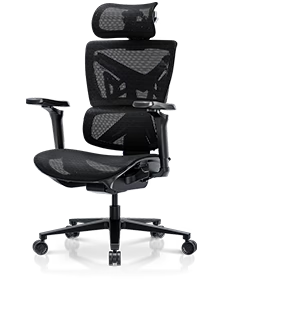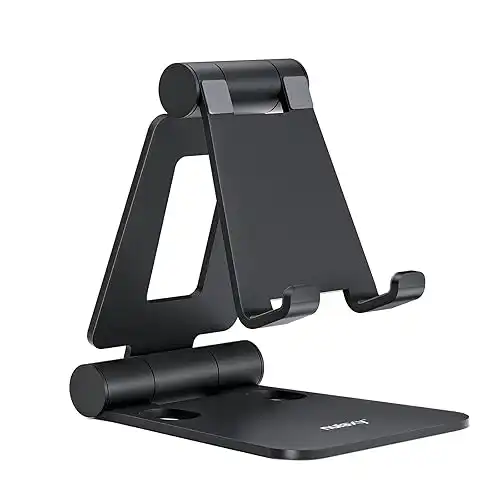This post may contain affiliate links which means I may receive a commission for purchases made through links. Learn more on my Private Policy page.
I have been reviewing the state of hybrid work, leaving on expert research and statistics from the U.S. Bureau of Labor Statistics, Owl Labs which is a leading video conferencing company who does independent research, Global Workplace Analytics, and Upwork Future Workforce who executes an annual survey that examines hiring trends, workforce strategies.
It is important to look at the status of the remote worker and remote environment in general from multiple sources to make sure we are getting the full picture. Demand for office spaces have been shrinking, but there does appear to be a strong push to get employees out of their own home and back into the office.
The comprehensive analysis within this article examines current statistics, trends, and impacts across multiple dimensions of remote work as well as the future outlook.
What is the Current State of Remote Work Arrangements?
Distribution of Work Models
Recent data from Owl Labs reveals significant disparities between current work arrangements and employee preferences [1]:
- 66% currently work in-office full-time
- 26% work in hybrid arrangements
- 7% work fully remote
However, employee preferences differ substantially from current arrangements:
- Only 22% want to work fully in-office
- 37% prefer hybrid work
- 41% prefer fully remote work

Educational and Demographic Patterns
The Bureau of Labor Statistics reports clear correlations between education and remote work access [3]:
- 52% of workers with a bachelor’s degree or higher worked from home
- Only 22% of those with a high school diploma had remote work access
- Gender distribution shows near parity:
- 36% of women worked remotely
- 34% of men worked remotely
Benefits and Challenges of Remote Work
The rise of working remotely has been swift because it offers many benefits but also poses many challenges, and both goes for workers and employers.
On the one hand, remote employees can integrate their work setting to wherever they are, be that at their house, cottage, vacation, etc. That’s quite appealing for career driven professionals like my husband. He finds it more challenging and stressful to “log off” of his computer for extended times than having some connection to the piles of emails that inevitably pile up. This also helps when managing family life with kids and the appeal of virtual meetings have only added to that integration.
For driven professionals this generally isn’t a problem. However for unmotivated employees, it can be a big problem. You also have potential isolation issues, lack to physical movement, lack of personal interactions and collaborations with colleagues, in person meetings with clients, etc. It also costs money to set up a new home office.
Those are just a few of the balancing acts from these benefits and challenges.
What is the Economic Impact?
Individual Home Office Cost Savings
Daily cost comparison from Owl Labs shows a significant personal financial impact [1]:
- $51: Average daily spending when working from office
- $36: Daily savings when working from home by converting an existing space, but this doesn’t factor in the upfront costs of purchasing furniture and accessories for a new home office.
Detailed in-office cost breakdown from their analysis:
- $16 for lunch
- $14 for commuting
- $13 for breakfast/coffee
- $8 for parking
- $20 for pet care (where applicable)
Corporate Financial Benefits
Global Analytics have found that organizations have reported, on average, substantial savings by implementing remote work [2]:
Converting an existing room into a home office is a cost-effective and time-saving solution compared to adding a new office space, which typically costs about $10,000 per employee per year in real estate costs
Some notable company specific savings by adding hybrid work:
- IBM: $50 million reduction in real estate costs
- Sun Microsystems: $68 million annual savings
- Nortel: $100,000 per employee saved in relocation costs
- Dow Chemical: over 30% savings on non-real estate costs
Home Office Costs and Budgeting
Building, renovating, or even squeezing in a home office can cost quite a bit of money too, so it’s important to factor in those costs as well. The cost of setting up a home office can vary widely depending on numerous factors such as the size of the space, materials, and features. We have seen the cost of a home office can range from $1,000 to over $20,000.
To budget for a home office, it’s essential to consider the following costs:
- Furniture and equipment: $1,000 to $5,000
- Lighting and electrical: $500 to $2,000
- Flooring and walls: $1,000 to $5,000
- Soundproofing and insulation: $500 to $2,000
- Internet and connectivity: $500 to $2,000
- Decor and design: $1,000 to $5,000
It’s also important to consider the ongoing costs of maintaining a home office, such as utility bills, internet, and software subscriptions for security. We have plenty of guides to help you for any space:
- Home Office Desk Setup Ideas: what you need with examples
- Small Computer Desk Ideas for a Living Room Office
- Small Computer Desk for Studio Apartment: Full Solutions Guide
- Small Computer Desk For Bedroom: Everything You Need To Know
Productivity and Performance Metrics
Remote Workers Productivity Gains
Several major companies have reported significant productivity improvements from remote workers[2]:
- 35-40% productivity increase at Best Buy, British Telecom, and Dow Chemical
- AT&T: Remote workers work 5 more hours weekly than office workers
- JD Edwards: 20-25% higher productivity among teleworkers
- American Express: 43% productivity increase in remote workers
- Compaq: 15-45% productivity increase
Current Productivity Statistics
Owl Labs’ research shows [1]:
- 65% report higher productivity in current working style
- 25% maintain same productivity levels
- 7% report decreased productivity
- 79% of managers observe increased team productivity in remote/hybrid settings

Technology and Communication
Virtual Meeting Dynamics
Current meeting statistics reveal both challenges and adaptations [1]:
- 88% of meetings include at least one remote participant
- 80% experience technical difficulties causing lost time
- 77% struggle with seeing faces and missing visual cues
- 80% report audio issues in hybrid meetings
- 76% face difficulties contributing effectively due to technology limitations
Technology Adoption
Current state and future desires [1]:
- 37% of employers upgraded video meeting technology in 2023
- Future technology requests:
- 48% want AI/AI assistants
- 44% desire augmented reality or mixed-reality devices
- 38% interested in holograms or avatars
- 32% want VR headsets
- 31% seek improved video conferencing technologies
Work-Life Integration and Flexibility
Value of Flexibility
Employee preferences regarding flexible work [1,2]:
- 62% would accept a 10% or higher pay cut for remote work options
- 25% would take a 15% pay cut for:
- 4-day work week
- Flexible working hours
- 36% would choose remote work over a pay raise
- Two-thirds prefer remote work options
- It also appears that workers strongly prefer to be in office 3 days per week [1]:

Multiple Income Streams
The rise of “polyworking” [1]:
- 46% have additional jobs or “side hustles”
- 36% plan to start one in the future
Generational breakdown of multiple job holders:
- Millennials: 74%
- Gen Z: 13%
- Baby Boomers: 13%
Primary reasons for multiple jobs:
- 39% need additional income
- 36% have extra time in primary job
- 34% pursue passion projects
- 33% face financial constraints

Mental Health and Workplace Stress
Stress Level Variations
Work arrangement impact on stress levels [1]:
- 56% overall report increased work-related stress
By work arrangement:
- 59% of full-time office workers report increased stress
- 55% of hybrid workers report increased stress
- 36% of remote workers report increased stress
Demographic variations:
- 71% of men report increased stress vs. 41% of women
- 65% of managers report increased stress vs. 34% of non-managers
- 64% at larger companies (250+ employees) report increased stress
- 44% at smaller companies report increased stress
Career Impact and Professional Development
Career Concerns
Employee concerns about remote work impact [1]:
- 63% worry managers view office workers as more trustworthy
- 60% concerned about missing opportunities when working remotely
- 55% worried about lack of career progression
- 52% fear being forced to return to office full-time

Professional Development
Training and development adaptations [2]:
- 65% of companies added or enhanced employee learning opportunities
- 63% trained employees on effective hybrid meetings
- 62% trained managers on remote team management
Environmental Impact
Sustainability Metrics
Environmental benefits of remote work [2]:
- Sun Microsystems: 32,000 metric tons of CO2 saved annually
- Office equipment uses twice the energy of home office equipment
- Traffic impact:
- $78 billion/year lost to traffic congestion
- Three billion gallons of gas wasted annually in traffic
Home Office Design and Construction
Designing and constructing a home office does require careful planning like:
- Functionality: consider the type of work you will be doing in your home office and the equipment and tools you will need to be productive
- Comfort: consider the comfort and ergonomics of your home office that include a good chair, maybe a standing desk How to Transition to a Standing Desk: A Beginner’s Guide,Standing Desk: What are the Health Benefits according to Experts,Ultimate Guide Standing Desks in 2024: Benefits, Finding your Match, & More. It’s also really important that your lighting is optimal, especially when considering that people who WFH tend to work longer hours; here is a guide to help you Home Office Lighting Ideas: Expert Tips & Best Practices
- Aesthetics: I, for one, wanted to ensure my home office was quite stylish. Employees have more flexibility to make their workspace their own and reflect their personal taste and style
- Natural light: is hands down the best lighting in my opinion. However, make sure you’re positioned in a way that doesn’t create eyestrain or a terrible halo background for video calls
- Storage: what sort of storage needs do you have? Maybe none if everything is digital, but maybe not. Keeping an organized and clutter free space is important
Ultra breathable, lightweight mesh that conforms to your body with an ergonomic, sturdy frame.
Consistently ranked as one of the top gaming chair on the market.
- Comfort & quality
- Easy assembly
- Aesthetic and ergonomics
- Value for money
- Firm seat cushion
- Initial skepticism due to cost
- Limited availability for popular models
Future Outlook and Trends
Workforce Evolution
Upwork’s research indicates continued growth in flexible work [4]:
- 69% of hiring managers anticipate that they will add new hires within 6-months
- 60% plan increased reliance on freelancers
- 66% expect continued freelancer engagement over next two years
Technology and AI Impact
Future workplace technology expectations [1]:
- 52% report AI technology adoption in their workplace
- 44% believe AI will improve job efficiency
- 31% think AI will compete with their jobs
- 23% worry about AI job replacement
Conclusion
Companies are clearly embracing hybrid work to accommodate the change in working preferences, but continue to want some level of control to determine their actual benefits. There are several factors that determine the benefits and challenges and they vary by industry, company, etc. What is clear is that employers that give their employees the proper tools and ability to do their jobs partially from home have seen positive trends in costs and productivity.
This appears to be a permanent preference shift by the aggregate workforce, especially with the younger cohort that are entering the workforce now, as we saw above. Rates of success in this new era require proper technology infrastructure, clear policies, and ongoing support for remote workers.
Sources:
[1] Owl Labs State of Hybrid Work Report 2023
[2] Global Workplace Analytics Research 2023
[3] U.S. Bureau of Labor Statistics American Time Use Survey 2023
[4] Upwork Future Workforce Report 2022







